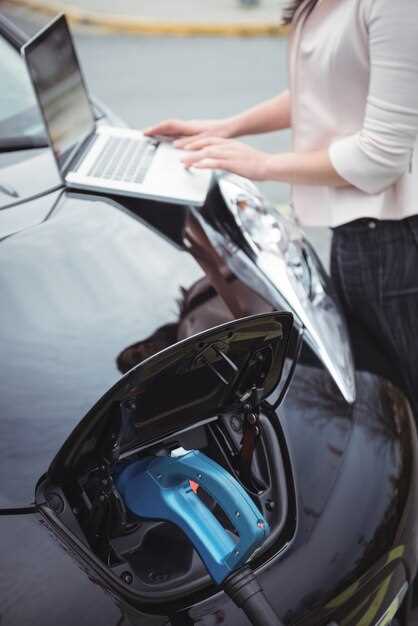
As electric vehicles (EVs) become increasingly mainstream, the longevity and reliability of their batteries are critical concerns for consumers. The battery, often considered the heart of an electric car, not only affects overall performance but also impacts the vehicle’s resale value and ownership costs. Understanding the intricacies of extended warranties for electric car batteries can empower buyers to make informed decisions, ensuring they are protected against unforeseen expenses.
Extended warranties serve as a safety net for EV owners, providing coverage beyond the manufacturer’s standard warranty period. These warranties can vary significantly in terms of coverage duration, specific components included, and costs. Prospective buyers must evaluate the terms carefully to determine whether the investment meets their needs and how it interacts with the manufacturer’s warranty. Additionally, factors such as battery chemistry, usage patterns, and regional climate can influence battery lifespan, making the choice of warranty even more pivotal.
In this article, we will delve into the essential aspects of extended warranties for electric car batteries, exploring what they cover, the benefits they offer, and how to assess whether an extended warranty is a worthwhile investment for your electric vehicle. By the end, you will have a clearer understanding of how to protect your investment and ensure peace of mind while driving towards a sustainable future.
Evaluating the Coverage Options for Electric Vehicle Battery Warranties

When purchasing an electric vehicle (EV), understanding the battery warranty coverage is crucial for making an informed decision. Electric vehicle batteries are complex and can be expensive to replace, making thorough evaluation of the warranty options essential.
The coverage options for electric vehicle battery warranties can vary significantly between manufacturers. Here are key factors to consider:
- Duration of Coverage:
- Most manufacturers offer warranties ranging from 8 to 10 years.
- Check the mileage limits that may accompany time-based warranties, commonly between 100,000 and 150,000 miles.
- Battery Capacity Maintenance:
- Look for warranties that guarantee a certain minimum battery capacity (often 70-75%) at the end of the warranty period.
- Understand how capacity degradation is measured and under what conditions the warranty applies.
- Types of Coverage:
- Comprehensive warranties cover defects and failures but may have exclusions for wear and tear.
- Some warranties provide additional coverage for parts connected to the battery management system.
- Transferability:
- Evaluate whether the warranty is transferable to future owners, which can enhance the resale value of the vehicle.
- Check any fees or requirements for transferring the warranty.
- Customer Support and Service:
- Investigate the manufacturer’s reputation for customer service and responsiveness regarding warranty claims.
- Find out if there are authorized repair facilities that can address warranty issues effectively.
In addition to these factors, it is advisable to read reviews and consult current EV owners to gather insights about real-world experiences with battery warranties. A comprehensive evaluation of coverage options will help ensure you choose a reliable electric vehicle with adequate battery protection, ultimately enhancing your ownership experience.
Determining the Cost-Benefit Ratio of Extended Warranties for Your EV
When evaluating the cost-benefit ratio of extended warranties for electric vehicle (EV) batteries, several factors must be taken into account. The initial cost of the warranty versus the potential expenses incurred from battery failures is a primary consideration. Electric vehicle batteries can be expensive to replace, often costing thousands of dollars. An extended warranty may provide peace of mind and financial protection against these costly repairs.
In addition to replacement costs, factors such as battery lifespan, usage patterns, and driving conditions should be assessed. Generally, EV batteries degrade over time, with a typical lifespan ranging from 8 to 15 years. Understanding your EV’s specific battery performance can aid in predicting whether an extended warranty will be beneficial. For instance, if you drive frequently or in extreme conditions, the likelihood of battery issues may increase, making the extended warranty more appealing.
It is also essential to examine the terms and conditions of the warranty. Different warranties may cover varying aspects such as degradation, replacement, labor, or associated parts. This variability can significantly affect the overall value of the warranty. Ensure that the coverage aligns with your anticipated needs to prevent potential out-of-pocket expenses down the road.
Another key element to consider is the warranty’s length in relation to your ownership plans. If you intend to keep the vehicle long-term, a longer warranty may prove beneficial. Conversely, if you plan to sell or trade the vehicle relatively soon, the extended warranty may not present a favorable return on investment. Analyzing your vehicle retention strategy can help determine the practicality of extending the warranty.
Lastly, it’s crucial to weigh the emotional benefits against the financial implications. For many, the assurance of coverage against unexpected repair costs can lead to a more enjoyable driving experience. This added peace of mind can sometimes outweigh the purely financial analysis, making an extended warranty worth considering even if the financial justification is not immediately evident.
Assessing Manufacturer Reputation and Warranty Claim Experiences

When considering an extended warranty for an electric car battery, understanding the manufacturer’s reputation is critical. A company’s history in producing reliable and high-quality vehicles can significantly influence the likelihood of a positive warranty experience. Researching consumer reviews, industry ratings, and expert opinions can provide insights into how well a manufacturer stands behind its products.
It is essential to evaluate customer feedback specifically related to warranty claims. Look for patterns in customer experiences, such as ease of claim processing, responsiveness of customer service, and the overall satisfaction level regarding resolution outcomes. Manufacturers that have a reputation for honoring claims without unnecessary delays generally indicate a commitment to customer service and confidence in their product’s durability.
Additionally, consider the length and terms of the manufacturer’s warranty offered on the vehicle’s battery. A longer warranty period may reflect the manufacturer’s assurance of product longevity, while specific clauses regarding transit, roadside assistance, or limits on coverage can affect the overall value of the warranty. Before making a purchase, check the manufacturer’s track record for fulfilling warranty obligations and handling disputes.
Furthermore, connecting with current electric vehicle owners through forums and social media can yield real-life testimonials on warranty experiences. Hearing firsthand accounts can clarify perceived reliability and uncover issues that may not be evident through formal channels. In summary, a thorough assessment of manufacturer reputation and warranty experiences is pivotal in making an informed decision regarding extended warranties for electric car batteries.
